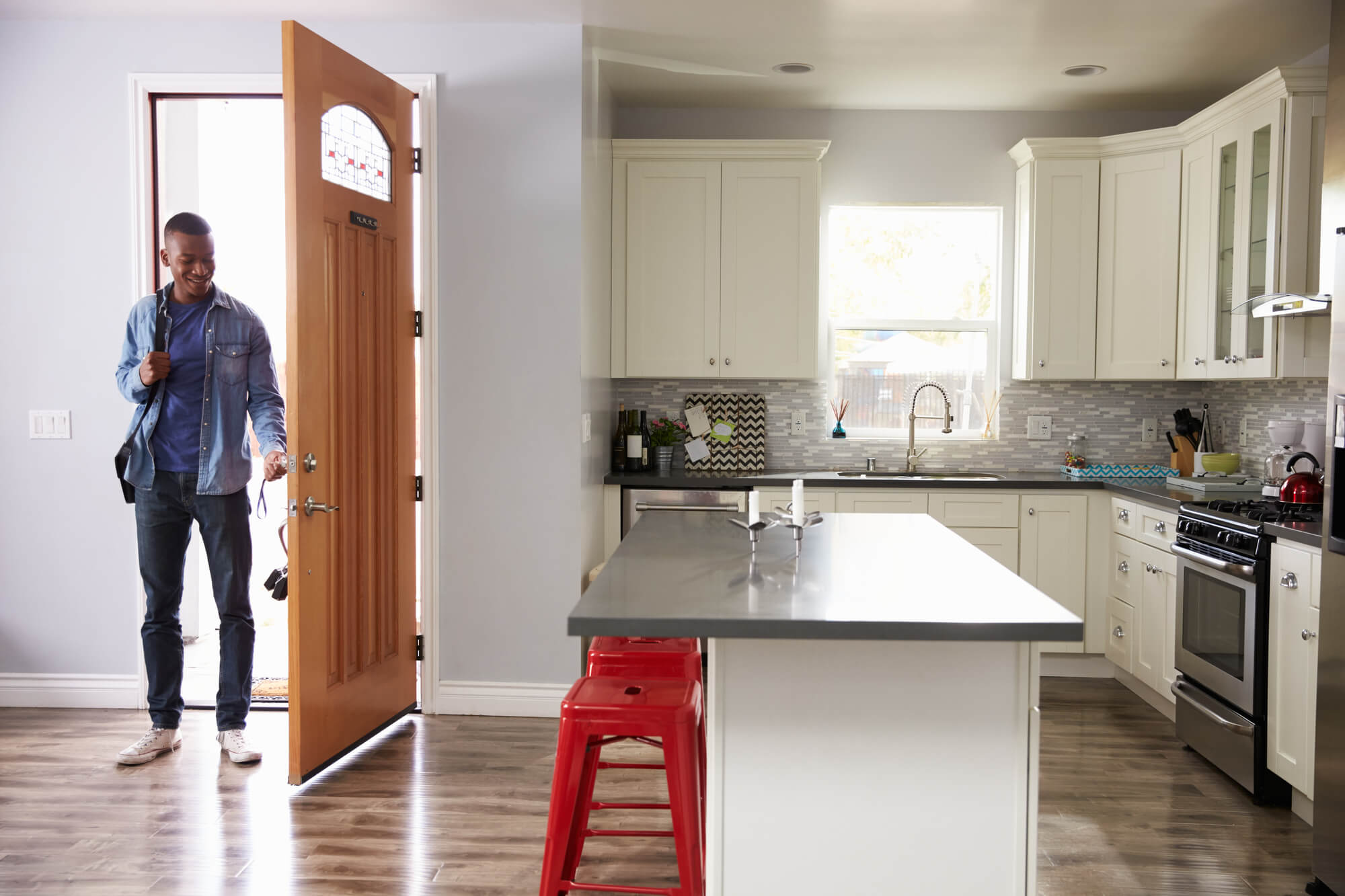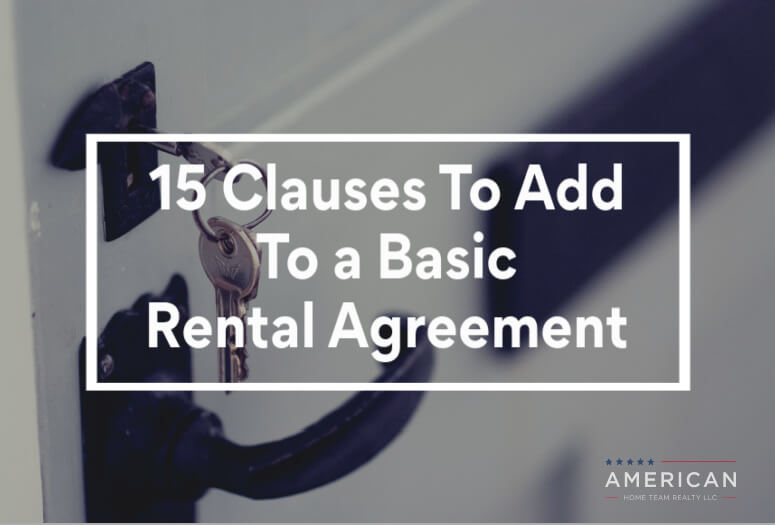That online template might not be enough.
Here are 15 things to add to that basic rental agreement to make sure you’re prepared.
If you’re like most, you became a landlord for the passive income—not for the contracts. Yet having a solid lease agreement is one of the most important parts of owning a rental property.
Many landlords simply download a basic rental agreement online and call it a day, but this could leave you unprotected and unprepared.
Here are 15 clauses, policies, and topics that you should add to that basic rental agreement to avoid problems later on.
1. Lease Term
Besides answering the question “month-to-month or annual?” there are a few additional things to consider regarding the term of the lease.
An important point to cover with your tenant is whether the lease will renew automatically. If they are expecting to move out when the lease is up, they might not appreciate hearing that you’ve marked them down for another year.
You should also have a clear policy on lease terminations—what are valid grounds for termination, how much notice should be given, etc.
Your lease should also include a severability clause. This basically means that if one portion of the lease is deemed invalid or unenforceable, the rest of the lease is still legally binding.

2. Rent
As a landlord, you’ve probably put a lot of thought into the amount you’re charging for rent, but there are a few more details you should iron out before putting anything in writing.
- When rent is due
- Which payment methods are accepted (check, credit card, etc.)
- What rent includes (parking, utilities, etc.)
- How many days’ notice you will give before rent increases
You should also include a “joint and several liability” clause. This means that each occupant is responsible—individually and collectively—for the rent, damages, and for fulfilling the obligations set forth in the lease.
3. Late Fees
Under Florida law, late fees (and the grounds for charging them) must be listed in the lease. If you neglect to include this information, your tenant can legally argue that they are not liable for any late fees.
4. Security Deposit
Florida landlords have three choices when it comes to how security deposits are stored:
- Hold the funds in a non-interest-bearing account until they is needed;
- Hold the funds in an interest-bearing account, with interest going to the tenant; or
- Post a surety bond for the amount.
You are free to choose whichever method you like, but this must be communicated in writing to the tenant (either in the lease or up to 30 days after receiving the deposit).
This section should also mention whether the security deposit is refundable and how it can be used (i.e. as the tenant’s last month’s rent).

5. Use of Premises
If you’re a first-time landlord, it might seem obvious that tenants will use the property for eating, sleeping, watching TV and other daily activities. Why do you need to specify this?
In reality, a “use of premises” clause is generally used to indicate whether a tenant can run a business out of the property.
Many landlords don’t want the added liability that comes along with running a business.
6. Subleasing
Most landlords want to know who is living in their rental property. Having a sublessee is a huge threat to your peace of mind.
Make sure you include a sublease clause stating that your tenant may not sublease the property.
7. Occupants
It sounds obvious, but disputes can (and do) arise from the misunderstanding of “guest” vs. “tenant.”
Luckily, you can sidestep this problem by having every lease include a list of the names of the occupants (and any minor children) allowed to reside on the premises.

8. Pets
Deciding to allow pets in your rentals isn’t as simple as “yes” or “no.”
If you do allow pets, even a basic lease agreement should include the species (not all pets are cats and dogs!) and even breeds of animals that are allowed. Check with any local ordinances, too. You might be fine with chickens, but the HOA might have a different perspective.
Your lease should also give specifics on pet rent and deposits. Again, check with your city/county ordinances to see if there are any laws specific to charging rent for pets.
9. Smoking/Vaping
Most landlords take issue with tenants who smoke—and for good reason. Cigarette smoke is harmful, unpleasant, and expensive to remove.
In addition to any no smoking policies, make sure your lease mentions your thoughts on e-cigarettes, as your tenants might not think of this activity as “smoking.”
10. Insurance
Landlord insurance policies will cover your investment (i.e. the physical structure of the home), but to protect your tenant’s belongings from loss, damage, and theft, they will need to carry renter’s insurance.
It’s up to you whether you will require them to hold renter’s insurance, but we always recommend doing so. The lease should specify this and also list the limits and policies you require.
11. Environmental Disclosures
If your home was built before 1978, federal law states that you must disclose the presence of lead paint and include a “Lead Warning Statement” in the lease. You must also provide a pamphlet on lead-based paint hazards.
Every landlord—regardless of the age of the rental property—must also include the following radon warning in the lease:
“RADON GAS: Radon is a naturally occurring radioactive gas that, when it has accumulated in a building in sufficient quantities, may present health risks to persons who are exposed to it over time. Levels of radon that exceed federal and state guidelines have been found in buildings in Florida. Additional information regarding radon and radon testing may be obtained from your county health department.”

12. Landlord Ingress
From time to time, you may find it necessary to inspect the property firsthand—either to let in a maintenance professional or simply check on the condition of the home.
Florida law requires that you give at least 12 hours’ notice before entering the property for a non-emergency. Whatever time period you choose, make sure this is included in your lease agreement.
13. Repairs and Maintenance
Legally, if you don’t properly maintain the residence, your tenant has the right to withhold rent. So clearly spell out in the lease agreement what the expectations are regarding maintenance.
- Can tenants make improvements to the residence?
- How soon must the tenant notify you of needed repairs?
- Does the tenant need to pay to replace a lost key?
14. Move-In/Move-Out Inspection
Having the property inspected between each tenant is a great way to keep tabs on your property and prevent disputes in the future.
In addition to regular move-in/move-out inspections, you should include verbiage in the lease informing tenants that properties will be inspected before they move in (or out) and that this report will be used to determine whether they receive their security deposit when the lease ends.

15. Disputes
If you are a landlord for long enough, you’re bound to have a dispute with a tenant sooner or later.
Keep arguments to a minimum by laying out the expectations right in the lease. Will you solve disputes by mediation, arbitration, or both? Who will pay the costs? Put it in writing so there are no misunderstandings later.
Conclusion
A basic rental agreement might get the job done if absolutely nothing goes wrong. But for those misunderstandings that plague any landlord-tenant relationship, having a clear, thorough lease can avoid many larger issues.
Being a landlord is fraught with legal issues surrounding your lease. But at American Home Team Realty, you can leave the contracts to us.
As a full-service property management agency, we’re available to screen tenants, write up contracts, schedule maintenance requests, collect rent, and everything else it takes to have a successful rental property.
Call today to see how we can assist you.


